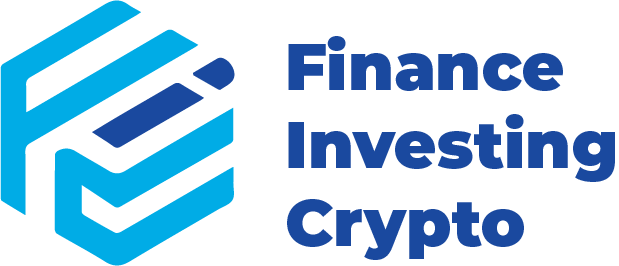Disclosure: The views and opinions expressed here belong solely to the author and do not represent the views and opinions of crypto.news’ editorial.
The buzz around real-world asset tokenization is reaching fever pitch, with multi-trillion-dollar forecasts capturing headlines and investor imaginations. Yet while this narrative has raced ahead, the reality is more modest: the total RWA market stands at $23 billion even after a 260% surge in H1 2025, still a speck beside the world’s hundred-trillion-dollar asset base.
Summary
- Asia holds massive potential for RWA tokenization, with trillions in private wealth and financing gaps, but progress has been slowed by fragmented regulation and cautious institutional capital.
- Asia’s regulatory diversity is a strength, not a weakness — its patchwork of pilot programs and frameworks enables fast learning, cross-border experimentation, and adaptable models that can scale.
- Collaborative infrastructure is the key to scale, with policymakers, TradFi institutions, and tech firms co-creating flexible systems and rules that support real-world tokenization use cases.
- Instead of waiting for global standards, Asia can lead by scaling from within, proving that regional experimentation and collaboration can lay the foundation for broader, interoperable frameworks.
Crucially, the potential for RWA tokenization in Asia is enormous. With $11 trillion in private wealth and a $2.2 trillion corporate financing gap, the region offers a natural proving ground — mobilising idle capital, unlocking fresh collateral, and widening investor access to traditionally illiquid asset classes.
So, why isn’t it scaling as expected? Adoption continues to be curtailed by regulatory and infrastructure gaps that keep institutional money, which drives scale, cautious as they await tested models. However, instead of waiting for the perfect conditions, consider a different perspective: Asia’s patchwork progress makes it an exciting launchpad for scaling tokenized markets. Its diversity is a catalyst for building the foundational rails needed to turn tokenization’s promise into mainstream practice — without waiting for one universal framework to emerge.
Asia’s patchwork: a feature, not a bug
Asia’s regulatory landscape is often described as fragmented. But this complexity is fast becoming its greatest asset in the race to build viable RWA markets. Instead of imposing a single approach, the region’s diversity has created multiple parallel sandboxes to test and retrofit new models into their unique financial structures.
For example, Singapore and Hong Kong have emerged as regional frontrunners with frameworks that balance experimentation and consumer protection. Meanwhile, markets like Thailand and Japan are charting their own paths, from cautious pilots to detailed legal definitions for digital securities and custody.
Collectively, this medley of experimentation enables breakthroughs in one market to inform best practices in another — creating a dynamic network of knowledge sharing across borders. History shows that this regulatory cross-pollination works: Singapore’s REIT framework remains a benchmark for peers like Hong Kong, which has refined its own guidelines to stay competitive. Likewise, lessons from Asia’s tokenization pilots can help shape smarter rules regionally, ensuring that workable frameworks spread faster than if markets acted alone.
Collaboration is key for scale
Experimentation alone, however, won’t bring scale. Sustained institutional participation requires clarity, stability, and trusted market infrastructure — and no entity can deliver this in isolation. Across Asia, policymakers, banks, and technology providers are co-creating rules, sharing risk, and shaping common frameworks.
Singapore exemplifies this approach. Alongside global partnerships with standard-setting bodies like the International Swaps and Derivatives Association, the Monetary Authority of Singapore leads initiatives such as Global Layer One, which convenes diverse industry players to co-develop interoperable systems that can support cross-border tokenized transactions.
Such layered, cross-sector collaboration bridges the gap between emerging digital markets and traditional finance. Global associations bring TradFi credibility, regulators translate high-level principles into practical rules on the ground, and local industry groups stress-test infrastructure and build the technology rails that make this trust possible.
A well-defined but adaptable regulatory framework — informed by both global best practices and local realities — is essential to give institutions the confidence they need to commit real capital.
The myth of universal standards
Underlying the hesitation to scale RWAs is the belief that markets must wait for a universal standard — a seamless, borderless adoption route much like blockchain itself. But that’s an illusion.
Chasing a hypothetical one-size-fits-all model for tokenized assets is counterproductive to innovation. RWAs currently have no dedicated global regulatory framework, and treatment varies widely across jurisdictions depending on local context. In reality, fast-growing financial technologies need flexibility, not uniformity. Asian markets are responding by developing intermediate frameworks through their pilots and collaborations.
The Gulf Cooperation Council follows a similar patchwork approach, sparking a tokenization boom in sectors like base metals and aircraft leasing. Contrastingly, the EU’s Markets in Crypto-Assets Regulation represents a different model built on the EU’s long-standing goal of harmonization in financial markets (following precedents like MiFID II and PSD2) to offer legal clarity and legitimacy to the crypto industry.
Ultimately, while each region will take its own path, a set of shared principles will likely emerge to guide the evolution of interoperable frameworks worldwide.
It’s time to scale from within the patchwork
Above all, institutions need clear, credible spaces to experiment now. Asia’s diverse markets offer ideal sandboxes to run pilots, scale what works, and connect lessons learned across borders. If the goal is to unlock real capital and deliver tangible impact, there’s no time to waste.
Instead of waiting for one universal rulebook, each jurisdiction can advance at its own pace while contributing to a shared foundation of standards for RWA markets. With this mosaic taking shape amid growing cross-border discourse, Asia isn’t just keeping pace — it can set the benchmark, proving that collaboration across complexity is how the industry moves from pilot to mainstream.










